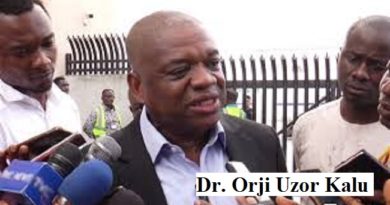See why all Officials of the Islamic Republic should be Afraid for their Lives.
See why all Officials of the Islamic Republic should be Afraid for their Lives.
Iran’s former intelligence minister, Ali Younesi, issued this warning on June 29, 2021, in an unprecedented statement that revealed the extent of foreign penetration into the Islamic Republic’s security structures.
Newera News gathered that after 12 days of war and a wave of attacks targeting commanders of the Islamic Revolutionary Guard Corps (IRGC) within Iran, one of the most pressing questions is: “How did the enemy infiltrate to such an extent?”
On June 13, a series of attacks struck several senior IRGC commanders deep inside Iranian territory.
While the Israeli strike was one of the most significant intelligence and military blows ever dealt to the Islamic Republic, officials have yet to offer a clear explanation for the intelligence failure – only arresting individuals at the local level.
This lack of official transparency has led to widespread confusion, speculation, and strong public reactions.
What unfolded on the morning of June 13 showed Israel’s intelligence dominance over Iran. The idea of “infiltration,” long used by the Islamic Republic’s officials as a slogan or warning, has now become a costly reality.
Ahmadinejad in Office: Killings, Cyberattacks, and the First Cracks in Security
In 2007, the assassination of nuclear physicist Ardeshir Hosseinpour marked the beginning of a series of incidents later attributed to Mossad.
The coroner said the cause of death was gas poisoning, but later accounts, including from former science minister Mostafa Moein, revealed that Israeli intelligence was behind the killing and Iran’s intelligence services had attempted to conceal the truth.
This marked the start of a troubling trend: the systematic assassination of nuclear scientists.
In 2009, Masoud Ali-Mohammadi was killed at his home entrance. In 2010, Majid Shahriari was assassinated on Tehran’s Artesh Boulevard. A year later, Dariush Rezaeinejad was gunned down, followed months later by the killing of Mostafa Ahmadi-Roshan near Tehran’s Seyed Khandan Bridge.
Ramin Mehmanparast, the Foreign Ministry spokesman at the time said in his initial explanation, “In preliminary investigations, signs of malice from the triangle of the Zionist regime, America, and hired agents in Iran are visible in this terrorist incident.”
Some in the Islamic Republic attributed the assassinations to Mossad and searched for its agents in Iran.
Iranian intelligence apparatus arrested someone named Majid Jamali Fashi for Ali-Mohammadi’s assassination and later executed him. But reports soon surfaced suggesting his confession was coerced, and his case documents manipulated by security officials.
This was not an isolated incident. In 2012, Islamic Republic media released a 38-minute documentary titled Terror Club, showcasing the IRGC’s role in arresting all the agents allegedly involved in the assassinations of nuclear scientists.
The documentary featured 13 suspects who confessed to espionage. One of them, Maziar Ebrahimi, years later after his release revealed he had been severely tortured into confessing.
“They start with psychological harassment, and then, depending on their goal, begin physical torture until you finally say and write what they want,” Ebrahimi told IranWire. “Apart from things they say to torment your soul and insult and humiliate you, they do everything to your body. It doesn’t matter if your skin is peeled or your bones are broken. They beat you until you finally confess.”
“I confessed so they wouldn’t hit me with cables and torture me anymore,” Ebrahimi said. “They would lay me on a bed and beat me with cables as much as they could. They would laugh and say your legs have become as big as your head.”
Despite this, the documentary was lauded by many Islamic Republic officials. Ramadan Sharif, IRGC’s public relations chief at the time, said, “The instructive documentary ‘Terror Club’ showed the methods of trapping the Zionist regime’s prey for espionage and terrorist operations.”
It wasn’t only the Israeli government and Mossad whose operations involved assassination.
In 2010, the infiltration took a new turn with the introduction of the Stuxnet malware into Iran’s nuclear facilities.
Developed jointly by Israeli and American intelligence agencies, the malware was designed to sabotage uranium enrichment centrifuges and succeeded in causing significant technical damage for a period.
Initially, Iranian officials dismissed the incident, and reduced it to a “soft war,” even announcing that no damage had been inflicted on the nuclear program.
Heydar Moslehi, the Islamic Republic’s intelligence minister at the time, said, “Our dominance over virtual networks has deprived enemies of any opportunity to operate in this field.”
Over time, however, it was accepted as real, and even internal sources acknowledged the attack as a major intelligence failure.
During this time, a group known as the “deviant circle” became the focus of infiltration accusations. Ahmadinejad’s close allies, particularly his vice president, Esfandiar Rahim Mashaei, were targeted in security documentaries and television programs.
Although no direct connection between this group and Mossad was ever officially confirmed, many viewed it as the beginning of an internal security conflict within the Islamic Republic.
Rouhani in Office: Nuclear Secrets Stolen and Fakhrizadeh Assassinated
When Hassan Rouhani became president, expectations were high for diplomacy and reducing foreign threats. Yet, under his presidency, one of the most significant intelligence breaches occurred – Mossad stole Iran’s nuclear archive.
In 2018, Israeli Prime Minister Benjamin Netanyahu claimed Mossad agents had stolen thousands of Iran’s secret documents from a warehouse in Tehran’s Turquzabad district. The documents allegedly detailed plans to build at least five nuclear warheads.
At first, Iranian officials, including Abbas Araghchi, dismissed the incident as “propaganda” or “mocking Netanyahu.” But over time, senior figures like Rouhani and Mohsen Rezaei acknowledged the breach.
Rezaei admitted, “This level of infiltration reveals serious security breaches.” The stolen material reportedly included 55,000 pages and another 55,000 digital files across 183 CDs.
Soon after, a series of explosions at the Natanz nuclear facility and the high-profile assassination of Mohsen Fakhrizadeh dealt fresh blows to the Islamic Republic’s intelligence claims.
In 2021, Fereydoun Abbasi, then chairman of the parliament’s energy commission, said that “five major explosions occurred at the Natanz nuclear sites, along with many smaller incidents.”
Mohsen Fakhrizadeh, a key figure in Iran’s nuclear program, was assassinated in November 2020 by a remotely controlled automatic weapon, without the attackers ever entering the country. The operation reportedly lasted only three minutes.
The gunfire system, mounted on a Nissan vehicle, fired 13 bullets from a distance of 150 meters, using artificial intelligence and satellite guidance. Many members of parliament saw it as an Israeli operation.
Mohsen Rezaei wrote to President Rouhani, “The continuation of such actions demonstrates the failure of the country’s intelligence agencies.”
Hossein Allaei, a former IRGC commander, said, “Israel has been conducting operations inside Iran, including assassinating scientists, for more than a decade.”
Even Ali Shamkhani, then Secretary of the Supreme National Security Council, said, “Because these incidents have become so frequent over the past 20 years, they weren’t taken seriously enough and this time, they succeeded.”
His comment contradicted his earlier statement from 2017: “There is no security threat in the country against any official in the Islamic Republic. I am my country’s security official. It was the 1980s when the Mujahedin [MEK] were assassinating.”
The contradiction between these statements, made just three years apart, highlighted the extent of Mossad’s infiltration into the country’s security apparatus.
The depth of that infiltration became even more evident in June 2021, when Mahmoud Ahmadinejad claimed in a video interview that the highest-ranking official responsible for countering Israeli spies within the Intelligence Ministry “was himself an Israeli spy.”
This statement exposed a growing rift between the Intelligence Ministry and IRGC Intelligence over control of the national security narrative.
The case of environmental activists, including Kavous Seyed Emami, who died in prison, further highlighted this internal divide.
While the Intelligence Ministry denied the espionage allegations, the IRGC Intelligence labeled the activists as Mossad agents.
Tehran’s prosecutor also claimed these individuals had monitored Iran’s missile program and passed classified information to foreign entities.
From Raisi to Pezeshkian: A Path to Total Failure
With the Ebrahim Raisi administration coming to power, the official narrative around “infiltration” became increasingly radical.
The government attempted to present itself as effectively countering Mossad, claiming to have delivered major intelligence blows to the organization. Yet, Israeli operations continued.
In June 2022, Hasan Sayyad Khodaei, a member of the IRGC Quds Force, was assassinated in Tehran.
Israel claimed he was affiliated with Quds Force Unit 840, responsible for external operations. Later, the judiciary announced that Mohsen Langarneshin, accused of providing logistical and intelligence support for the assassination, had been executed earlier this year.
Shortly afterward, Hossein Taeb, who had led the IRGC Intelligence Organization for about 13 years, was removed from his position and appointed as an advisor to the IRGC commander-in-chief.
Many interpreted this move as a sign of dissatisfaction with his handling of Israeli-linked sabotage operations and assassinations
The appointment of Mohammad Kazemi, former head of IRGC Intelligence Protection, as Taeb’s successor was seen by some as a strategic pivot toward a deeper focus on infiltration and counterintelligence.
Despite several arrests and security developments reported by state media following Taeb’s removal, on July 24, 2024 – after Raisi’s death in a helicopter crash – Intelligence Minister Esmail Khatib declared the dismantling of Mossad’s infiltration network the government’s most important achievement, describing it as “the turning point of the Intelligence Ministry’s performance under Raisi’s administration.”
However, despite official claims of success, Israel’s large-scale attack in June 2025 revealed that Mossad agents remain embedded within Iran’s intelligence infrastructure.




